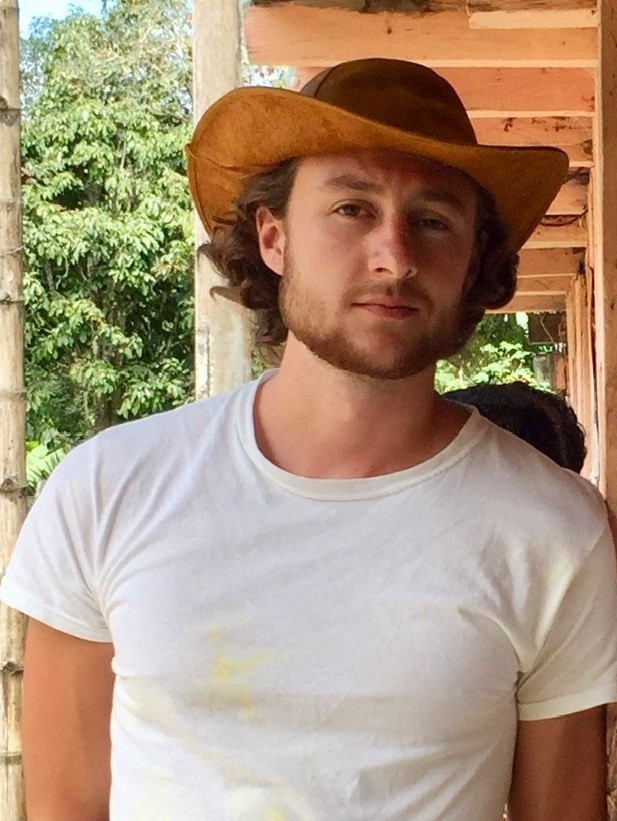SIT Fellow will document water quality in Ecuadorian villages threatened by mining
Publication Date: April 21, 2023
Publication Location: Brattleboro, Vermont
Contact: Kate Casa | [email protected]

A 2018 SIT Ecuador alum will return to the Intag Valley, in one of just 25 “megabiodiverse” regions in the world, to monitor water quality in villages threatened by mining.
Patrick Robinson was named a 2023 Alice Rowan Swanson Fellow, SIT announced this month. Robinson studied abroad on SIT Ecuador: Development, Politics, and Languages in spring 2018. Then a student at the University of Virginia, he graduated in 2019 with a double major in global development studies and foreign affairs. Currently, he is a PhD candidate in sociocultural anthropology at University of Arizona.
“I am honored and delighted to have been named an ARS Fellow, and I look forward to supporting the ARS family's mission of advancing human rights around the world,” Robinson said.
Alice Rowan Swanson Fellowships are awarded twice annually to SIT alumni seeking to pursue locally led human rights projects in the countries where they studied abroad. The fellowship was established in 2009 by the family of an SIT Nicaragua alumna as a tribute to her desire to bridge cultures and help others, and the role that SIT played in her life. A 2007 graduate of Amherst College, Alice Rowan Swanson was killed while riding her bicycle to work in 2008.
Ecuador’s Intag Valley is the site of a long-simmering dispute over mining and regional development. Government-granted mining concessions to foreign corporations now cover more than 90 percent of the valley. Robinson said local activists fear mining activity will damage the rare cloud forest ecology of their communities and annihilate traditional lifestyles that have characterized the valley for more than a century.
“There are few, if any, human rights more fundamental than the right to clean water, the right to a healthy natural environment, and the right to practice the traditional ways of life characteristic of one’s people and community,” Robinson wrote in his fellowship application. All these rights are threatened by the prospect of mining in Intag, he notes. “Large-scale open-pit copper and gold mining projects like those slated to begin in Intag are notorious for the extensive social and environmental damage they so often cause.”
In a recommendation for Robinson, Angel Flores and Graham Richards, members of a local parish council, said the mining conflict is causing "clear social and environmental consequences that are expected to worsen exponentially over the coming months, years, and decades."
Robinson aims to collect water quality data to document environmental degradation resulting from exploratory mining operations in one community where local activists have already measured above-normal levels of arsenic, zinc, copper, and other metals. He will also collect samples to establish a baseline in several other communities where mining has not yet started.
“This documentation is essential,” Robinson wrote in his proposal. “Environmental damage must be recorded if communities are to successfully petition for a change.”
In addition to environmental impacts, Robinson notes that water quality degradation affects the local economy, including the region’s primary economic drivers: small-scale agriculture and livestock. “No community should be forced to renounce their traditional way of life because of decisions others make, over which they have no agency,” he states.
“By empowering local people to protect their lands, human rights, and traditional ways of life, I aim to bolster an alternative regional development strategy, espoused by many Inteños, that is based on the indigenous Andean cosmovision of Sumak Kawsay (good living) and that emphasizes environmental preservation and regeneration, participatory democracy, and respect for traditional lifeways.”
Alice Rowan Swanson Fellows are required to carry out projects that are locally led and in conjunction with local organizations. Robinson plans to work with two conservation organizations, Área de Conservación y Uso Sostenible Municipal Intag Toisán (ACUSMIT) and Defensa y Conservación Ecológica de Intag (DECOIN), as well as members of one local parish council.
In 2018, Robinson conducted his SIT Independent Study Project in the village of Junín, where he lived with a homestay family and interviewed dozens of local stakeholders. He returned to the Intag region in 2019 with two UVA students where, over the next three months, they worked with local activists to choose test sites and collect samples for heavy metals analyses. They also coordinated and paid for wifi installation at a local ecotourism cooperative; worked with a small, U.S.-based alternative tourism agency on a marketing campaign; and collaborated with a local women’s plantain flour cooperative to help brand and support their products.
Citing his strong existing ties in the region, SIT Ecuador Academic Director Fabian Espinosa said Robinson "would be received as another member of the Intag community."
